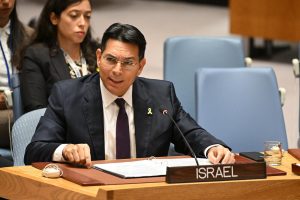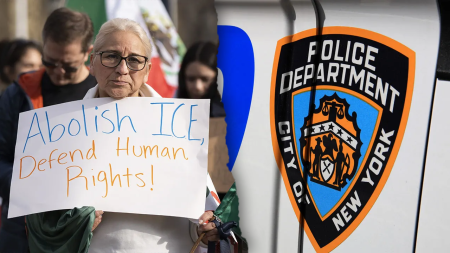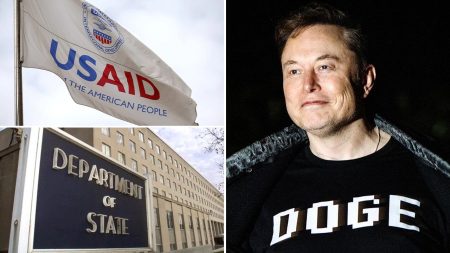The sudden collapse of Bashar al-Assad’s regime in Syria has triggered a complex geopolitical scramble, with Israel taking swift action to secure its borders and expressing cautious optimism about the future of its volatile neighbor. While Israeli Ambassador to the UN, Danny Danon, insists that Israel is not interfering in Syria’s internal affairs, the nation’s military actions tell a different story. Following Assad’s ouster, Israel launched airstrikes targeting military and chemical weapons sites, fearing these assets could fall into hostile hands. Simultaneously, Israeli troops moved into the Golan Heights buffer zone, a strategic area established after the 1973 Yom Kippur War. This move, while framed by Israel as a defensive measure, has drawn sharp criticism from neighboring countries like Egypt, Jordan, and Saudi Arabia, who accuse Israel of opportunistically capitalizing on the Syrian crisis.
Israel’s concerns stem from the uncertainty surrounding the power vacuum left by Assad’s departure. The key player in Assad’s downfall, Hayat Tahrir al-Sham (HTS), carries a complex and concerning history. Emerging from the shadows of al-Qaeda, HTS has recently attempted to rebrand itself, seeking to distance itself from its terrorist roots and even lobbying for removal from the U.S. terrorist list. However, its leader remains a wanted figure with a substantial bounty on his head, raising significant questions about the group’s true nature and future intentions. This ambiguity poses a direct threat to Israel’s security, as HTS’s control of Damascus raises the specter of a hostile entity on its doorstep.
Israel’s apprehension is further fueled by Iran’s deep involvement in Syria under Assad’s regime. Ambassador Danon acknowledges Iran’s heavy investment in the country and expresses hope that the new Syrian government will reject Iranian influence. However, the nature of the revolution, involving alliances with groups like HTS and other militant factions, casts a shadow over this hopeful outlook. The complex interplay of these actors leaves Israel wary of the potential for further instability and the emergence of new threats along its border. The involvement of “bad actors,” as Danon characterizes them, adds another layer of complexity to an already volatile situation.
The seizure of Mount Hermon, a strategic peak overlooking the border between Israel and Syria, underscores Israel’s security concerns. This high ground, previously exploited by Iran for drone incursions, represents a critical vulnerability for Israel. By securing this vantage point, Israel aims to enhance its defensive capabilities and prevent further hostile activity along its border. While described as a temporary measure, the occupation of Mount Hermon signifies Israel’s determination to maintain control over strategic assets and monitor the evolving situation within Syria.
Ambassador Danon emphasizes that Israel’s primary goal is to prevent terrorist groups from establishing a presence along its border. He expresses hope for a “better future” for the Syrian people, acknowledging the long history of oppression under the Assad dynasty. While offering humanitarian sentiments, Israel’s actions are primarily driven by self-preservation and a desire to maintain stability in a highly volatile region. The potential for further unrest and the uncertain trajectory of Syria’s political landscape necessitate a cautious and proactive approach from Israel’s perspective.
The evolving situation in Syria presents a complex and multifaceted challenge for Israel. While outwardly expressing non-interference, Israel’s military actions demonstrate a clear commitment to safeguarding its security interests. The fall of Assad, while potentially offering a respite from a hostile regime, has created a power vacuum with unpredictable consequences. The emergence of HTS, a group with a complex history and uncertain future, raises serious concerns for Israel. The possibility of continued Iranian influence, the presence of other “bad actors,” and the overall instability of the situation demand a vigilant and proactive approach from Israel as it navigates the uncertainties of its neighbor’s future. The interplay of these factors will ultimately determine the course of events in the region and the future of Israeli-Syrian relations.










